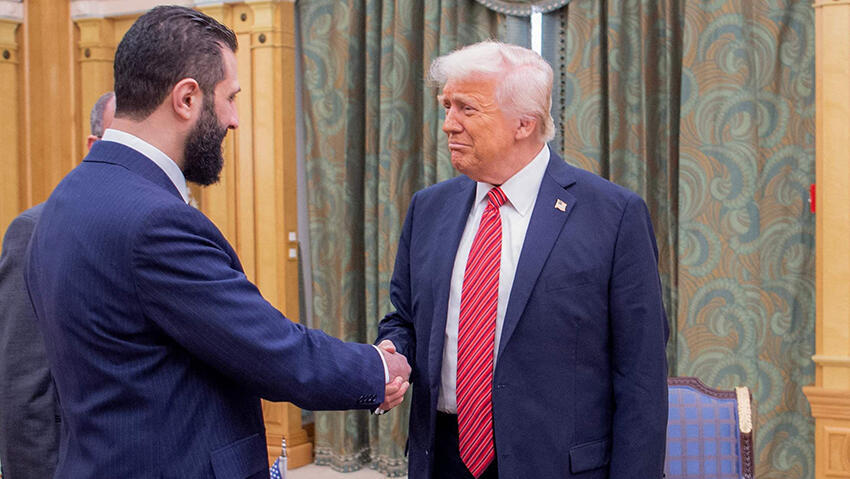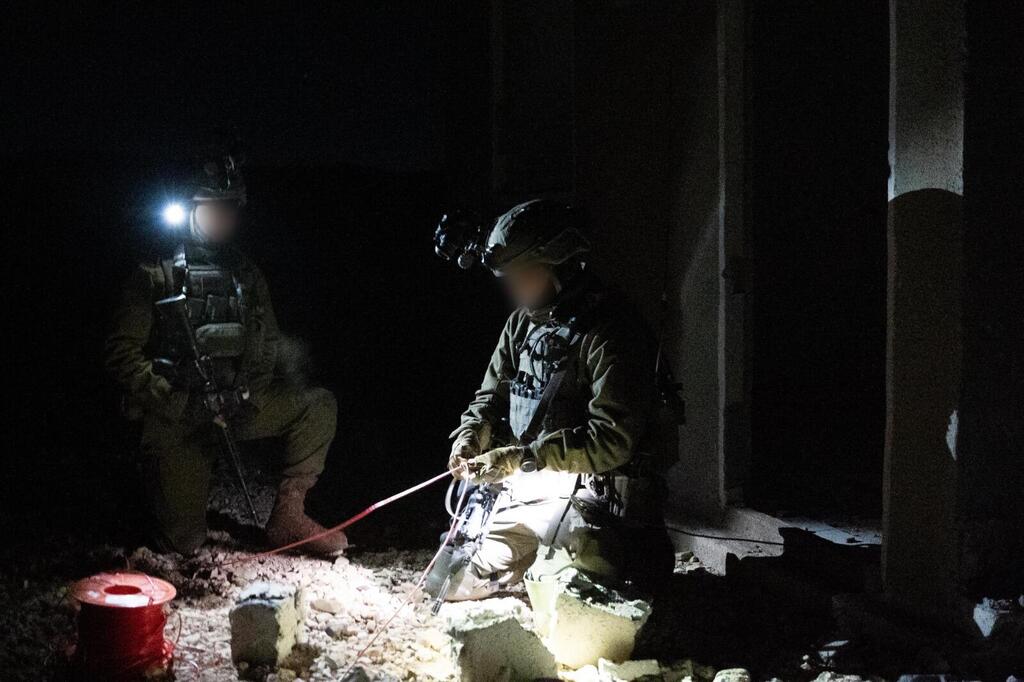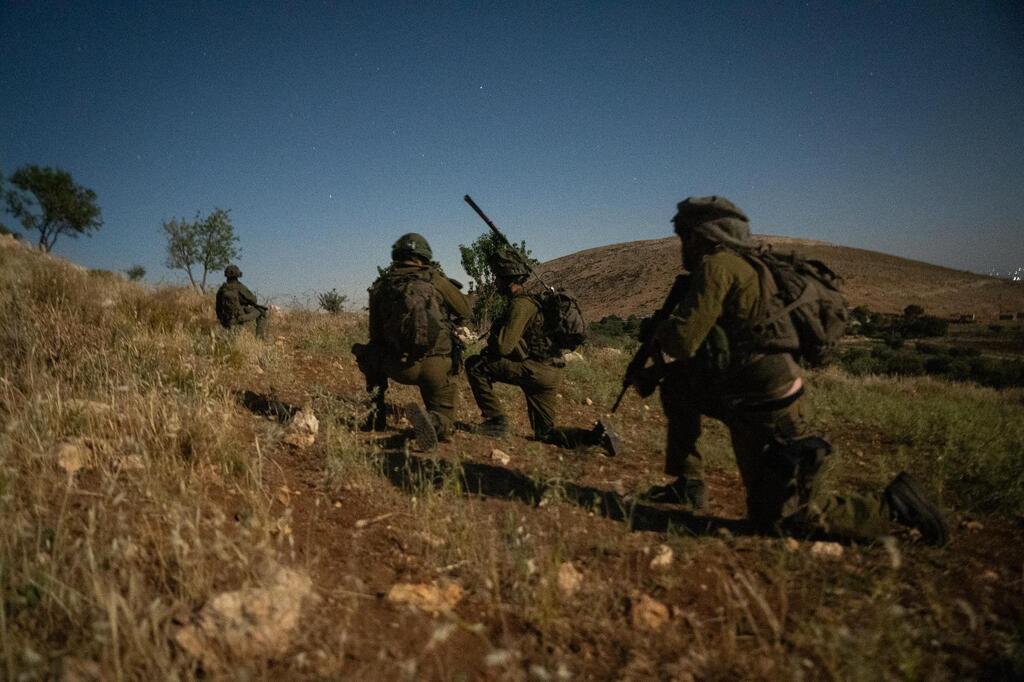The fall of former Syrian President Bashar Assad’s regime has triggered dramatic shifts across the country, prompting the United States’ acting Ambassador to the UN Dorothy Shea to urge the newly formed Syrian government, led by Ahmad al-Sharaa, to prioritize negotiations with Israel for a nonaggression pact—a step she described as essential for eventual border demarcation.
Her remarks, delivered from the UN Security Council platform, signal a broader American initiative to reshape regional security and political arrangements, backed by Turkey and Qatar. Observers warn this may be part of a “coercive peace” that disregards long-standing questions of sovereignty and historical legitimacy.
4 View gallery


Syrian leader Ahmad al-Sharaa and US President Donald Trump
(Photo: AFP PHOTO / SAUDI ROYAL PALACE / BANDAR AL-JALOUD)
Washington has praised al-Sharaa’s government for reform efforts, including initiatives on missing persons and dismantling remaining chemical weapons stockpiles. Yet its repeated emphasis on relations with Israel and demands to expel Palestinian factions from Syria has sparked wide controversy in Syrian and Arab circles.
Shea’s comments came during a special UN Security Council session on Syria. “We encourage the new Syrian government to take serious steps toward a nonaggression agreement with Israel as a foundation for border demarcation,” she said, also urging Syria to ban and deport what she called “Palestinian terrorist groups.”
She pointed to U.S. President Donald Trump's easing of sanctions on Damascus as yielding “tangible outcomes,” including a $7 billion energy investment deal involving American, Qatari and Turkish companies. Still, many analysts believe the international focus has prematurely shifted to rapprochement with Israel—even before Syria completes its internal transitional phase.
The Golan Heights, which Israel occupied in 1967 and formally annexed in 1981—a move recognized by the Trump administration—remains the core dispute in any future peace deal. But repeated Israeli statements declaring the area “nonnegotiable” complicate any serious diplomatic track.
4 View gallery


Defense Minister Israel Katz visiting troops on the Syrian Hermon
(Photo: Ariel Hermoni/Defense Ministry)
Dr. Samir Al-Ali, an Istanbul-based former professor of international relations at Damascus University, said that current U.S. proposals “reflect not a genuine peace process but an effort to normalize occupation.”
“International law is clear—the Golan is occupied territory,” he said. “Pushing for a nonaggression pact while Israeli troops are deployed miles deep inside Syrian territory amounts to nothing more than coerced normalization.”
A senior official from Syria’s Foreign Ministry, speaking on condition of anonymity, said that “the transitional government is open to all diplomatic initiatives, including ceasefire talks and border discussions, but only within the framework of Syrian sovereignty and international law—especially UN Resolutions 242 and 338.”
The official emphasized that the government is not in a rush to take any irreversible steps, stressing that its current priority is domestic stabilization and preparing for national elections scheduled for mid-2026.
Since the collapse of Assad’s regime at the end of 2024, Israel has deepened its military presence inside Syrian territory, particularly in the south. Citing the need to contain Iranian-backed militias and monitor Hamas and Palestinian Islamic Jihad movements, Israel has reportedly set up monitoring points and maintains a semi-permanent presence.
An AP report previously confirmed that Israeli forces have advanced several miles into Syrian territory, amid international silence and tacit coordination with armed opposition groups.
Abdel-Razzaq Idris, a Berlin-based Syrian analyst, said that “what we are witnessing is de facto occupation.”
“This is no longer just about airstrikes or intelligence operations. Israeli forces now have fixed positions inside Syria. It’s unprecedented and should be cause for condemnation, not negotiation,” he said.
Get the Ynetnews app on your smartphone: Google Play: https://bit.ly/4eJ37pE | Apple App Store: https://bit.ly/3ZL7iNv
Despite early signs of Arab engagement with al-Sharaa’s government, including visits by Gulf and Egyptian delegations, Syria’s openness toward Israel and its silence over Israeli airstrikes on Iranian and Palestinian targets have cooled enthusiasm in some Arab capitals.
An Egyptian diplomatic source said that certain Gulf states have “expressed clear reservations about any normalization moves outside of Arab consensus, especially in the absence of a final resolution to the Palestinian cause.”
The source warned that “rushing into Washington and Tel Aviv’s arms could isolate Syria from its Arab surroundings once again.”
In Gaza, Hamas condemned Shea’s remarks as “an attempt to repackage the Zionist occupation through the gates of Damascus,” while the Popular Front for the Liberation of Palestine stated: “Any Syrian government that agrees to expel resistance factions or label them as terrorists has abandoned the principles of the [Muslim] nation—and we will treat it as an enemy.”
Syrian journalist Mazen Nassif, currently based in Paris, posed a critical question: “Who authorized this government to negotiate or normalize? We did not elect them, nor do we know who is shaping their strategy. Syrians want stability, dignity and sovereignty—not elite-level deals made in secrecy.”
Syria appears to have entered a new phase, defined not only by the “post-Assad” reality, but also by what many call the “post-nation-state” era, where major international players seek to redefine Syria’s regional role more as a proxy battlefield than a sovereign actor.
While al-Sharaa’s government attempts to position itself as pragmatic, and Washington pushes hard to reshape the post-conflict landscape, the road to genuine peace remains fraught with challenges: above all, a crisis of legitimacy, internal disunity and deep uncertainty surrounding the fate of the Golan Heights.
- The story is written by Rizik Alabi and reprinted with permission from The Media Line.




